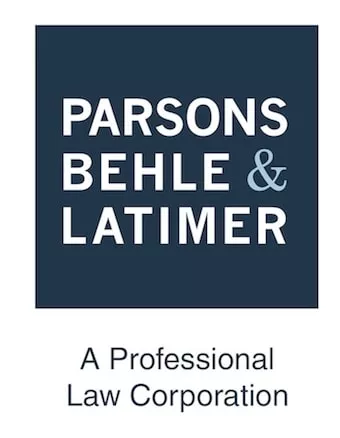- in United States
We are writing to notify you that effective Jan. 1, 2024, all entities organized and operating in the United States will need to comply with the Corporate Transparency Act (CTA). This will generally require that the entity register its "beneficial owners" with the Financial Crimes Enforcement Network (FinCEN). This alert reviews theregistration process and requirements and how Parsons Behle & Latimer is able to support clients with registration.
What is the CTA?
The CTA is a U.S. Federal Law that was enacted in 2021. The CTA's purpose is to combat money laundering, fraud and other illicit activities by requiring business entities to report their beneficial owners to FinCEN's non-public database. The CTA aims to help increase transparency and accountability in corporate ownership and prevent the misuse of anonymous entities for illegal purposes.
Which entities must report?
Any entity registered to do business, or organized with a U.S. state or Native American Tribe, must comply with the CTA. This includes corporations, LLCs, LLPs, LLLPs, LPs, non-profit corporations and business trusts as well as any other entity that is created by the filing of a document with the Secretary of State or Native American Tribe.
Are there any exemptions from reporting?
Non-profit entities, large operating entities and entities operating in highly-regulated industries (e.g. banks and CPA firms) are exempt from reporting. A large operating entity must have at least 20 full-time employees AND tax returns showing more than $5 million in gross receipts or sales to be exempt. As such, most LLCs—even if closely held—must report under the CTA. All other entities must register their beneficial owners with FinCEN.
What must be reported and how often?
Each entity must report its "beneficial owners," which are the individuals who ultimately own 25% of the entity or exercise substantial control over the entity. For each "beneficial owner," the following information must be reported:
Entities:
- Full legal name
- Any trade name or DBA
- Current street address
- The company's jurisdiction
- The Tax Identification Number (TIN)
Company Applicants / Beneficial Owners:
- Full name
- Date of birth
- Current residential address
- Non-expired U.S. identification document
- A photocopy of the document identified in (D) above
Once reported, an entity must update FinCEN within 30 days of any change to its reported beneficial owner information.
What is done with the information collected?
The data collected will be entered into the Beneficial Owner Secure System (BOSS) which is a database operated and maintained by FinCEN. These reports will be considered sensitive information and kept confidential with the exception of access by the following:FinCEN, certain other law enforcement agencies with court approval, non-U.S. law enforcement agencies, e.g., foreign governments, financial institutions and regulators with the consent of the reporting party.
When does compliance begin?
Reporting opens on Jan. 1, 2024. Entities created before the end of 2023 will have until Jan. 1, 2025, to report beneficial owners. However, an entity that makes changes to its beneficial owners in 2024 should report those changes within 30 days of the change. For companies registered or created after Dec. 31, 2023, reporting must occur within 90 days of the entity's organization. For entities organized in 2025 and going forward, registration must occur within 30 days.
What are the potential consequences for failing to report?
Willful failure to report required information under the CTA can result in significant penalties including but not limited to:
- Civil Penalties: Individuals or companies that willfully fail to report or provide false information may face civil penalties up to $500 per day for each day that violation continues with a maximum of $10,000.
- Criminal Penalties: In more serious cases, willful violations of the CTA can lead to criminal charges. If convicted, individuals could face fines of up to $250,000 or imprisonment for up to two years or both.
The content of this article is intended to provide a general guide to the subject matter. Specialist advice should be sought about your specific circumstances.
[View Source]



